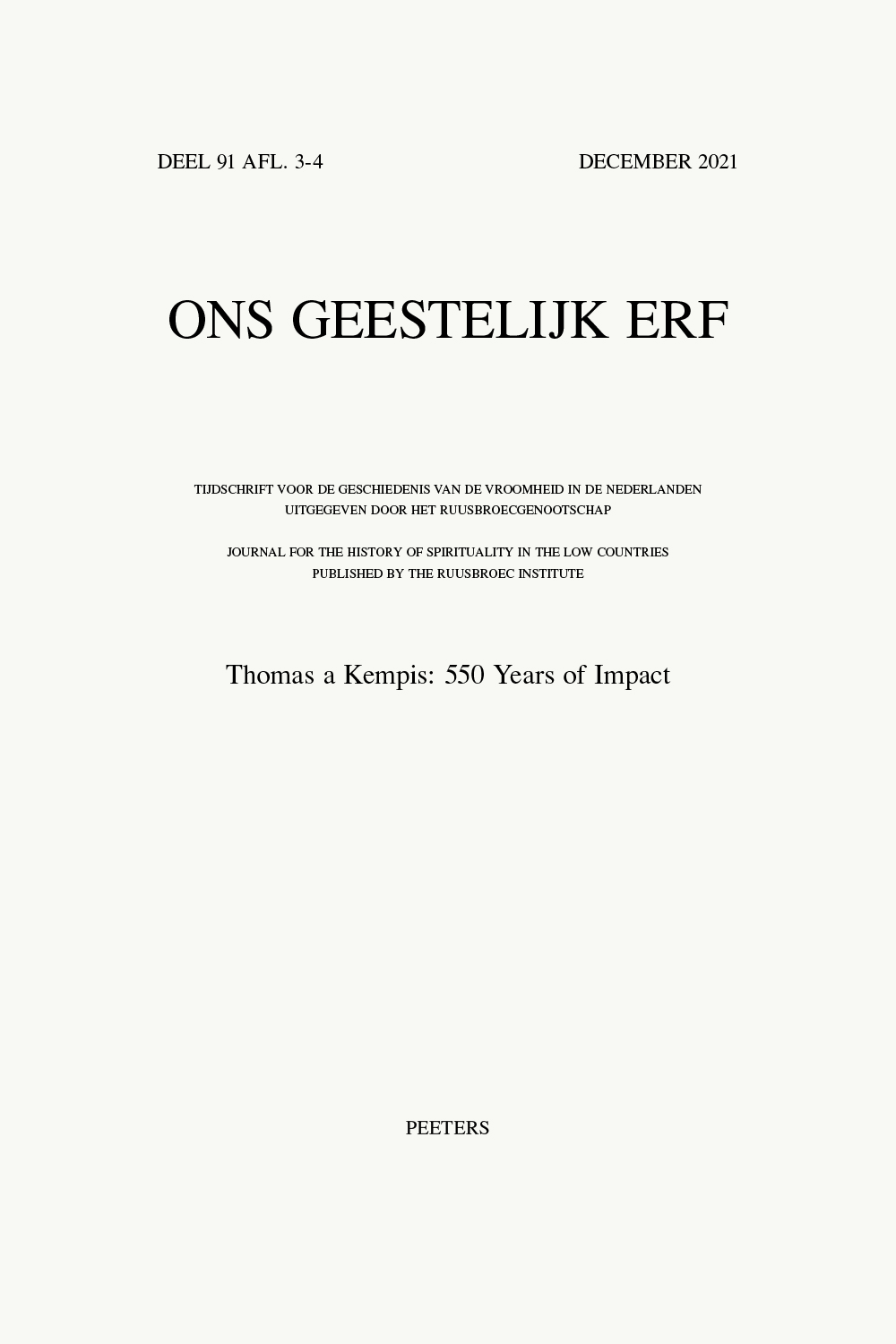 previous article in this issue previous article in this issue | next article in this issue  |

Preview first page |
Document Details : Title: Le retable des Sept oeuvres de miséricorde du Maître d'Alkmaar Subtitle: Essai d'interprétation selon la mystique de Ruysbroeck l'Admirable Author(s): RABIER, Delphine Journal: Ons Geestelijk Erf Volume: 81 Issue: 4 Date: December 2010 Pages: 339-359 DOI: 10.2143/OGE.81.4.2056314 Abstract : In this contribution, based on the links between the leading themes of the altarpiece of The Seven works of mercy (1504, Rijksmuseum in Amsterdam) and Flemish devotional and mystical thought, the writings of Ruysbroeck the Admirable (1293-1381) will guide us. The work of the Master of Alkmaar, marked by great religious depth, deserves to be studied by means of several basic ideas expressed by the prior of Groenendael. The subject of the seven panels that constitute this altarpiece is derived from the Gospel according to St Matthew (XXV, 31-46). In this passage, Christ announces the Last Judgment and says that the chosen ones will be those who will have come to aid to their neighbours by practicing the works of mercy. This polyptych, which was probably commissioned by the Confraternity of the Holy Ghost for their hospital in Alkmaar, presents benefactors in an urban setting accomplishing acts of charity in the presence of Christ. By interpreting this altarpiece according to the teachings of Ruysbroeck the Admirable, which is studied on the basis of extracts mainly from The Spiritual Espousals (Die geestelike brulocht), and The Sparkling Stone (Vanden blinkenden steen), three main topics are discussed: the active practice of the virtue of liberality, the three visits of Jesus Christ (the Incarnation, the daily coming in the soul of the faithful, as well as the Last Judgment), and the ‘common life’ (dat ghemeine leven). |
|


